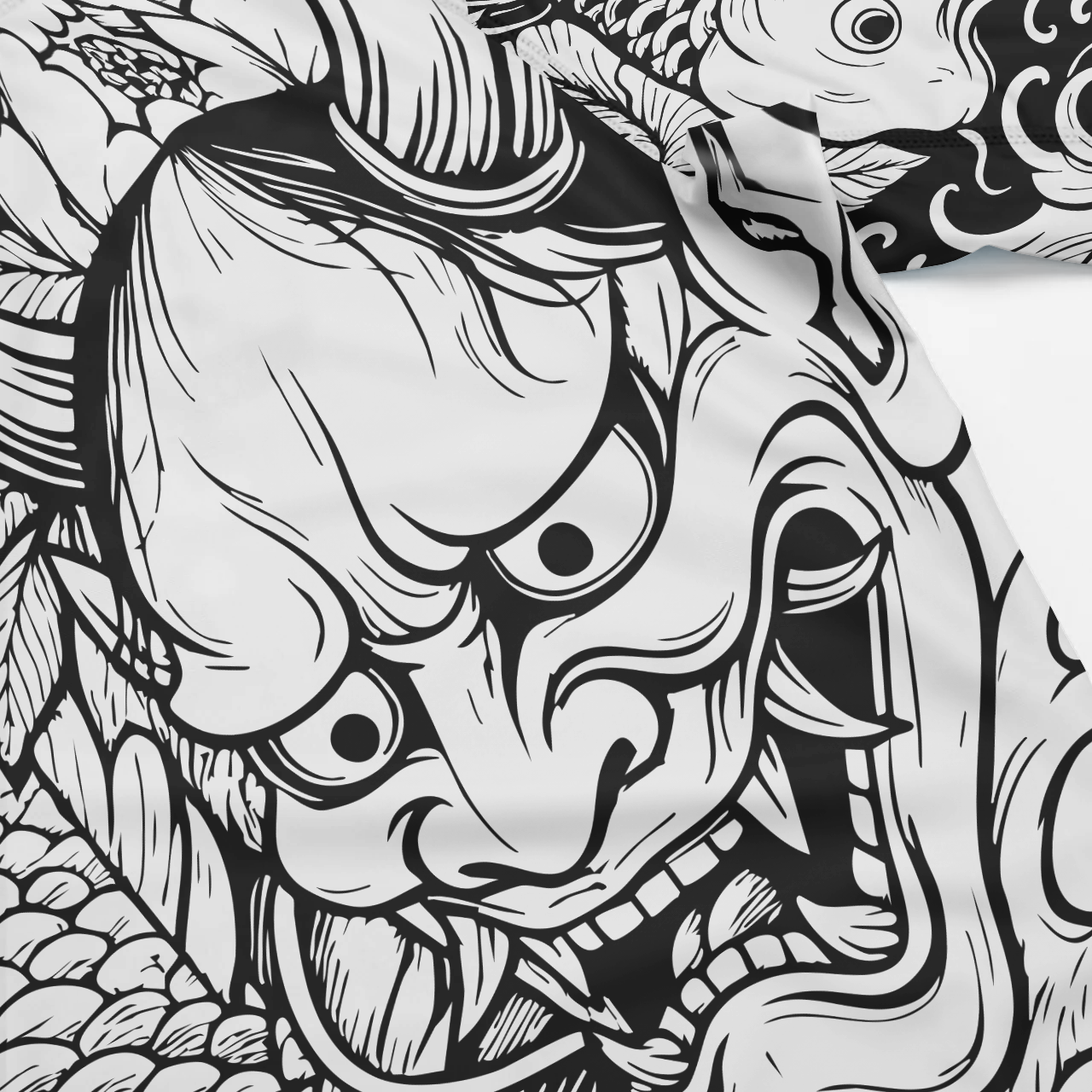Is BJJ a Cult?
Let me paint a quick picture for you…
You walk into a BJJ gym and see a group of people dressed in special outfits.
You notice them perhaps bowing in and out of class. There is a deference to the coach and long-time practitioners that goes beyond normal social dynamics outside of the dojo.
You notice ritualized infliction of discomfort by advanced members directed at newer members.
At the end, the leader of the group may give a speech about improving yourself, being disciplined, and how this activity known as BJJ can completely change your life for the better.
Finally, students flock up to you asking whether or not you plan to join.
All of this begs the question – is Jiu Jitsu a cult?
In this article, I pick apart the question of whether or not Brazilian Jiu Jitsu is a cult and critically examine the dynamics that beg the question in the first place.
Okay… here we go.
What is a cult?
According to Wikipedia, in modern English the word cult refers to a social group defined by “unusual religious, spiritual, or philosophical beliefs, or common interest in a particular personality, object, or goal… the word cult is usually considered pejorative.”
Often, the word cult connotes some sort of physical harm, or even death, occurring at the hands of the leadership towards the followers, or at the hands of the followers towards non-members. This type of group is typically called a destructive cult.
Although cults can be destructive directly and indirectly, it is not a hard requirement per se.
The cultish aspects of BJJ
It is undeniable that BJJ can have cult-like elements.
After all, the desire to submit your opponents and the belief that being better at such a task has its merits even for people not in violent jobs or occupations can certainly be considered “unusual.”
This activity can also cause physical and emotional harm for some individuals involved. In fact, most long term “members” have a laundry list of injuries due to their participation in jiu jitsu.
It goes without saying that if you participate in BJJ for years, you will probably spend tens of thousands of dollars on memberships, special outfits, competition events, and other associated costs of Jiu Jitsu – perhaps can we call this financial harm?
Furthermore, showing up a few times per week and giving deference the coach (aka ‘personality’) certainly has the potential to be cultish.
Additionally, you often see a fanatical obsession with BJJ being the greatest thing to have ever existed ever, like ever in history. You just have to try it and you will get it.
Finally, BJJ black belts are often venerated beyond what is appropriate even for skilled individuals.
It’s not uncommon for both BJJ practitioners and non-practitioners to assume that a BJJ black belt has some deeper insight into life that you might one day hope to absorb a small piece of.
Despite this, stories of venerated black belts with high profile gyms and/or BJJ moves named after them sexually exploiting students (followers?), or at the very least covering for this behavior, are sadly becoming more common as people come forward with their stories.
When you consider all the above factors, its not unreasonable to point out that there are some cult-like elements.
But does that mean BJJ itself is a cult?
BJJ is not a cult – but your gym might be
Joking aside, BJJ as an activity is not a cult.
Although it can be very addicting to train BJJ, you are free to check out at any time, and you can (usually) leave.
While some people may become fanatical in their training to the detriment of other aspects of their life, this is usually a personal decision as opposed to pressure from the group or gym itself.
With that said, individual BJJ gyms could certainly be cultish.
I have personally not trained at a gym that felt like a cult, but I have heard stories about certain gyms or affiliations having more “cult like tendencies” than others.
Typically, these include requiring you to wear specific apparel and BJJ Gis, denigrating other schools and affiliations as fundamentally ‘doing it wrong,’ and a fanatical fervor among students that the methods at their gym are far and above superior to other BJJ training styles and certainly better than any non-BJJ activity.
Furthermore, an individual BJJ instructor may display cult-leader-like characteristics on both a positive and negative side.
These include a strong charisma that causes followers to flock and venerate the instructor over other individuals beyond what is deserved based on the instructor’s knowledge of BJJ.
Additionally cult-like tendencies could be spoken or unspoken expectations for students that stray beyond what the students themselves want out of BJJ – for example, requiring a certain amount of attendance or competition participation lest the students be ridiculed or otherwise shunned from the overall group.
Finally, on the darkest side, instructors who take sexual or financial advantage of students via to the instructor’s position in the gym would be the highest and worst example of cult-like tendencies in BJJ, especially when other members of the group make a concerted effort to cover up the incident as opposed to finding justice for the victim.
Although the above scenarios are few and far between, they do happen and it is worth being aware of this fact.
How can I tell if my BJJ gym is a cult?
Alright, so for the most part, BJJ is not a cult.
However, I would be remiss if I didn’t touch on a few ways you can detect cultish-ness in a BJJ gym.
Generally speaking, you should guard against the following dynamics:
- The instructor denigrates students, especially in front of other students, fostering a hostile dynamic on the mat
- Excessive financial obligations that you did not sign up for
- Sexual or physical abuse at the hands of instructors or ranking students that gets covered up by members of the community
- Requesting or demanding more from you as a student than you willingly want to give
- Participation and involvement with the gym negatively affects non-BJJ aspects of your life
Chances are the above dynamics are not occurring in your gym. However, if you recognize the above situations, you should strongly consider switching to another gym.
Our Take
Although we had some fun in this article, I’m going to state that I do not believe BJJ is a cult.
While some gyms have the potential to be destructive or otherwise display cult-like tendencies, the art of Brazilian Jiu Jitsu itself cannot reasonably be called a cult.
Nevertheless, if you do find the culture of your gym destructive in any way, it’s a red flag that you should bail lest you get pulled deeper in to the dynamic.
At the end of the day, BJJ should improve your life and well-being on the whole.
Most importantly, it should be intrinsically rewarding (mostly) fun.




































































































